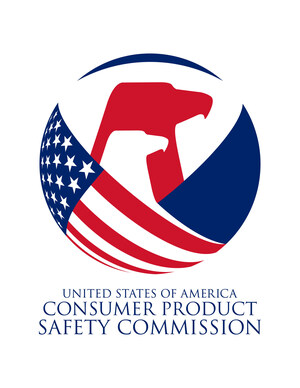CPSC Warns of Post-Storm Hazards in the Northeast U.S. from Portable Generators
WASHINGTON, Feb. 26 /PRNewswire-USNewswire/ -- Recent severe storms in the Northeast U.S. have caused destruction resulting in power outages. The U.S. Consumer Product Safety Commission (CPSC) is warning residents in the area of the deadly dangers from portable generators, which are often used to deal with the loss of electricity. Carbon monoxide from generators resulted in at least 70 deaths in 2008.
(Logo: http://www.newscom.com/cgi-bin/prnh/20030904/USCSCLOGO)
CPSC strongly warns consumers to never use a generator indoors – including garages, basements, crawlspaces and sheds – even with ventilation. Exhaust fumes contain extremely high levels of carbon monoxide (CO) which can rapidly become deadly if inhaled.
Consumers should only use a portable generator outdoors in a dry area away from doors, windows and vents that can allow CO to come indoors. Wait for the rain to pass before using a generator, as consumer-grade generators are not weatherproof and can pose the risk of electrocution and shock when used in wet conditions.
Additional life-saving safety tips from CPSC include:
- If you start to feel sick, dizzy or weak while using a generator, get to fresh air right away. The CO from generators can readily lead to full incapacitation and death.
- Do not connect the generator directly into your home's electrical system through a receptacle outlet – this is an extremely dangerous practice that poses a fire hazard and an electrocution hazard to utility workers and neighbors served by the same transformer.
- If using a generator, plug individual appliances into heavy duty, outdoor-rated extension cords and plug cords into the generator.
- Check that the extension cords have a wire gauge adequate for the appliance loads and have all three prongs, including a grounding pin.
- Keep charcoal grills outside. Never use them indoors. Burning charcoal in an enclosed space can produce lethal levels of carbon monoxide poisoning.
- Check to make sure your smoke alarms and carbon monoxide alarms have batteries and are working.
For more information, go to http://www.cpsc.gov/generator.html.
CPSC Contact: (301) 504-7908
SOURCE U.S. Consumer Product Safety Commission
WANT YOUR COMPANY'S NEWS FEATURED ON PRNEWSWIRE.COM?
Newsrooms &
Influencers
Digital Media
Outlets
Journalists
Opted In





Share this article